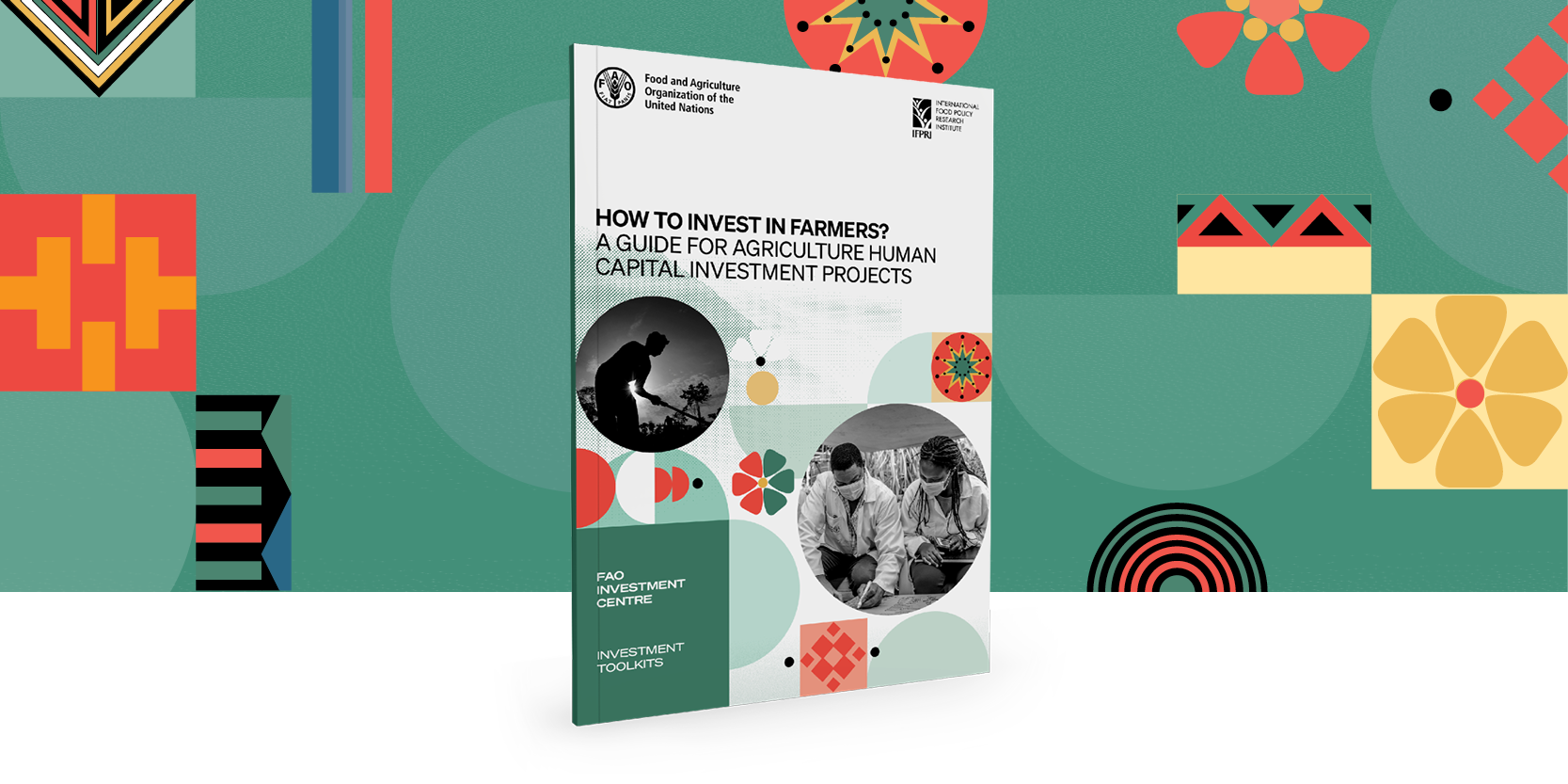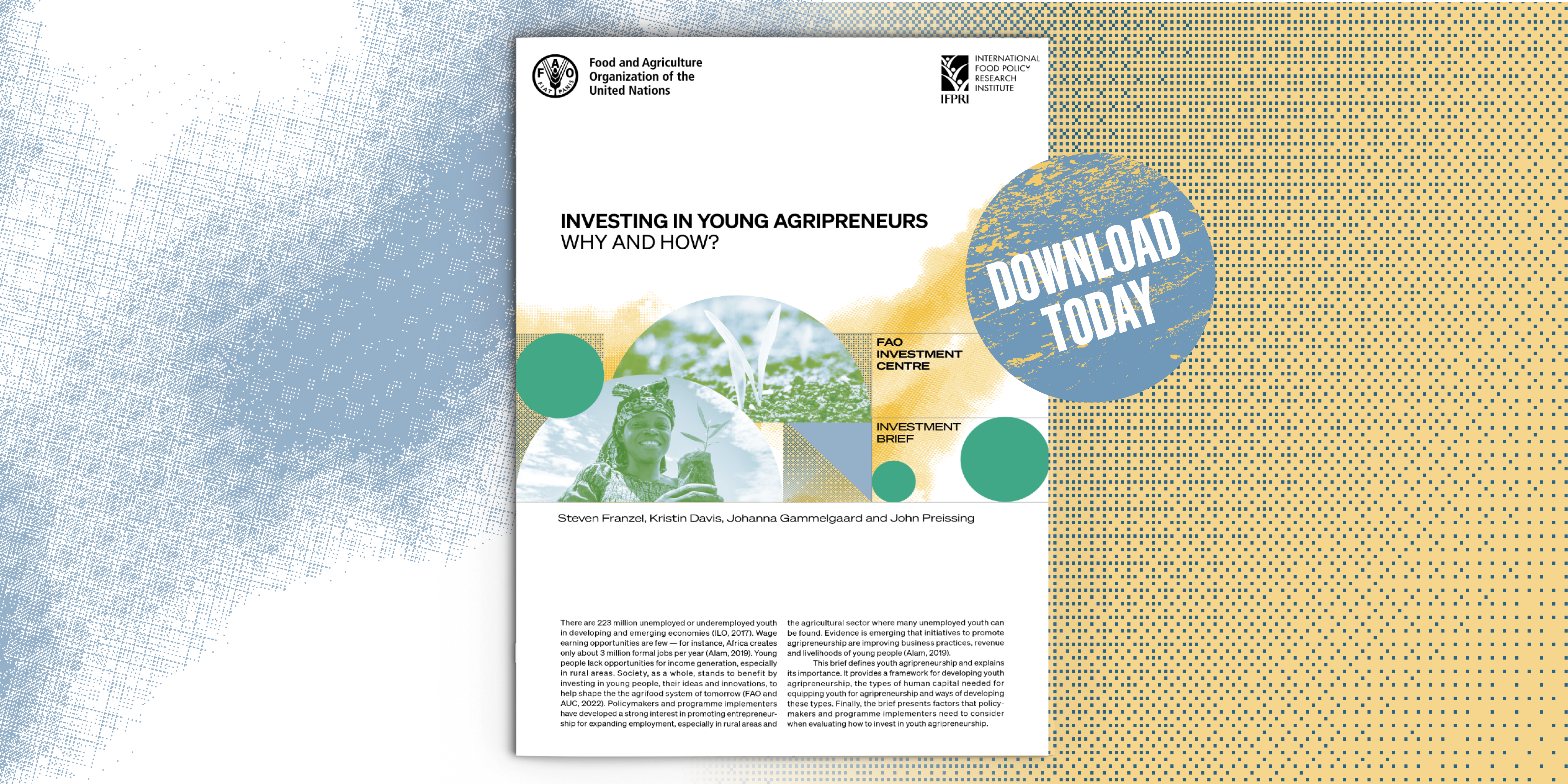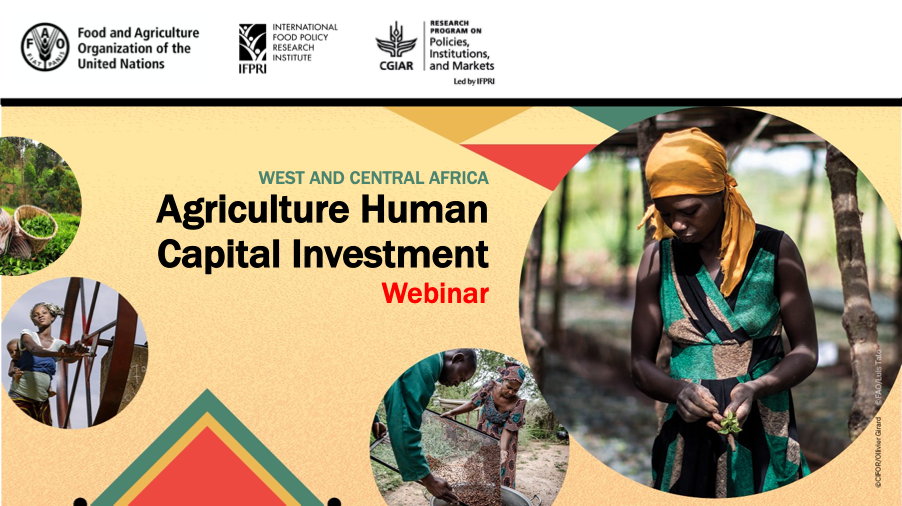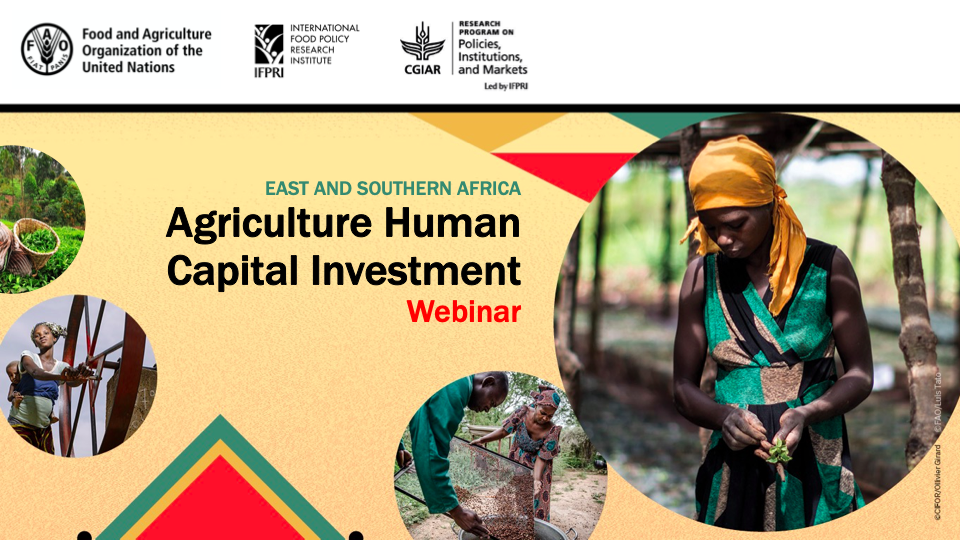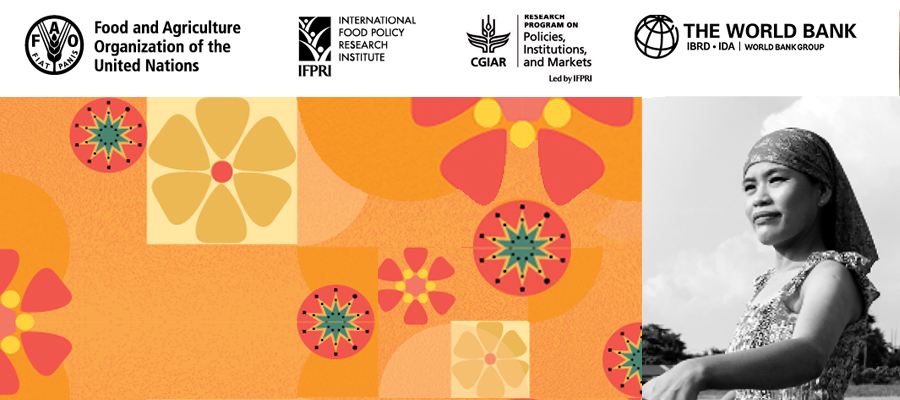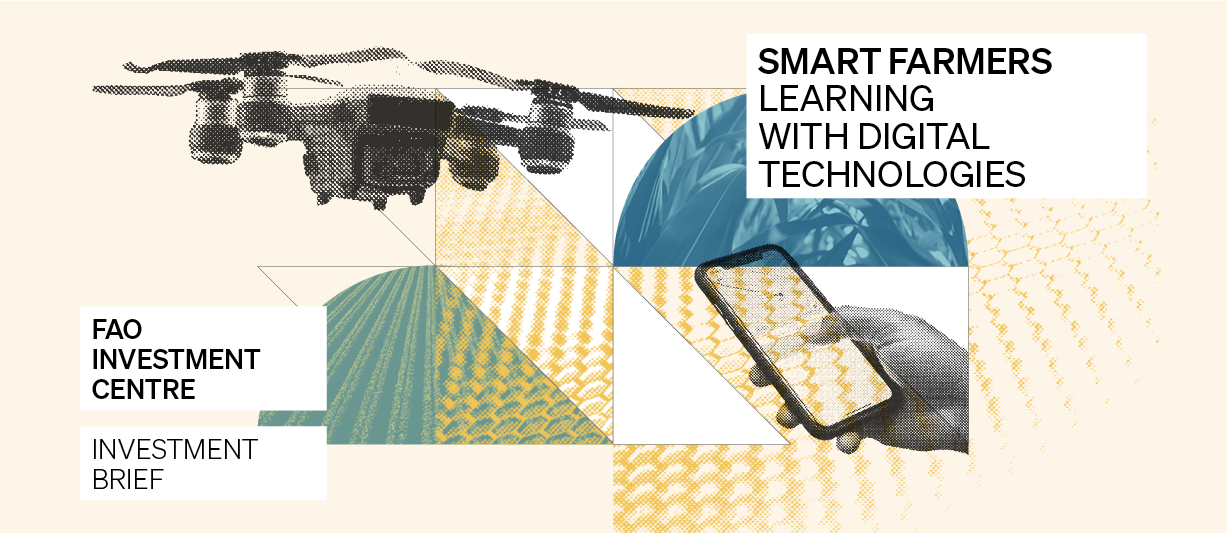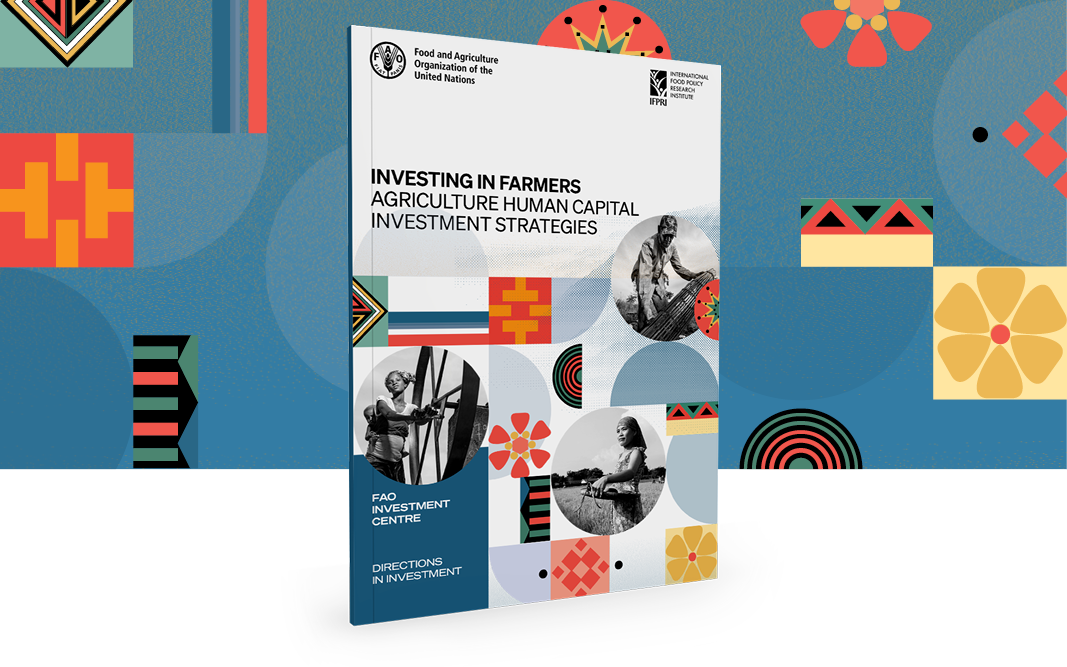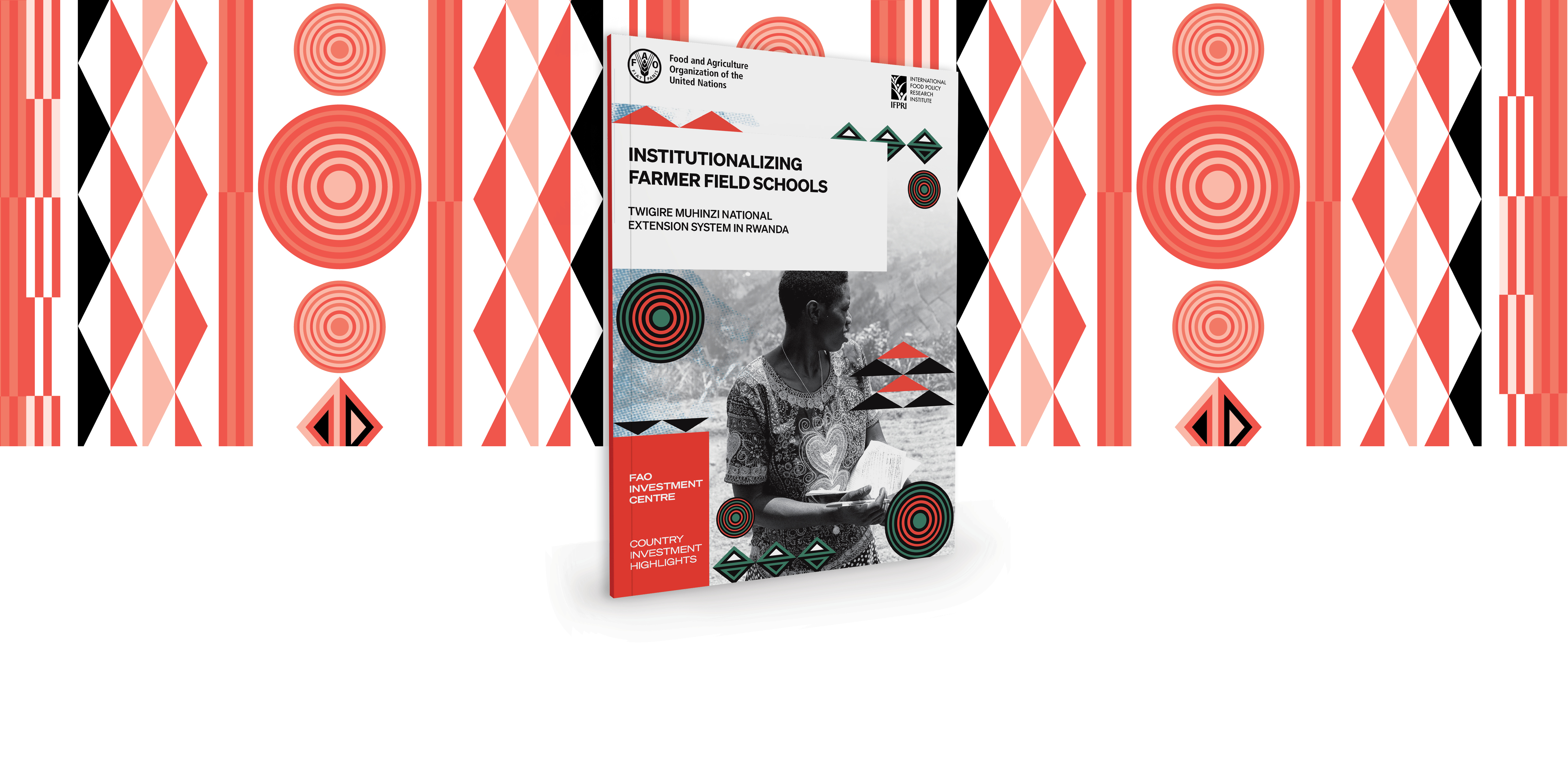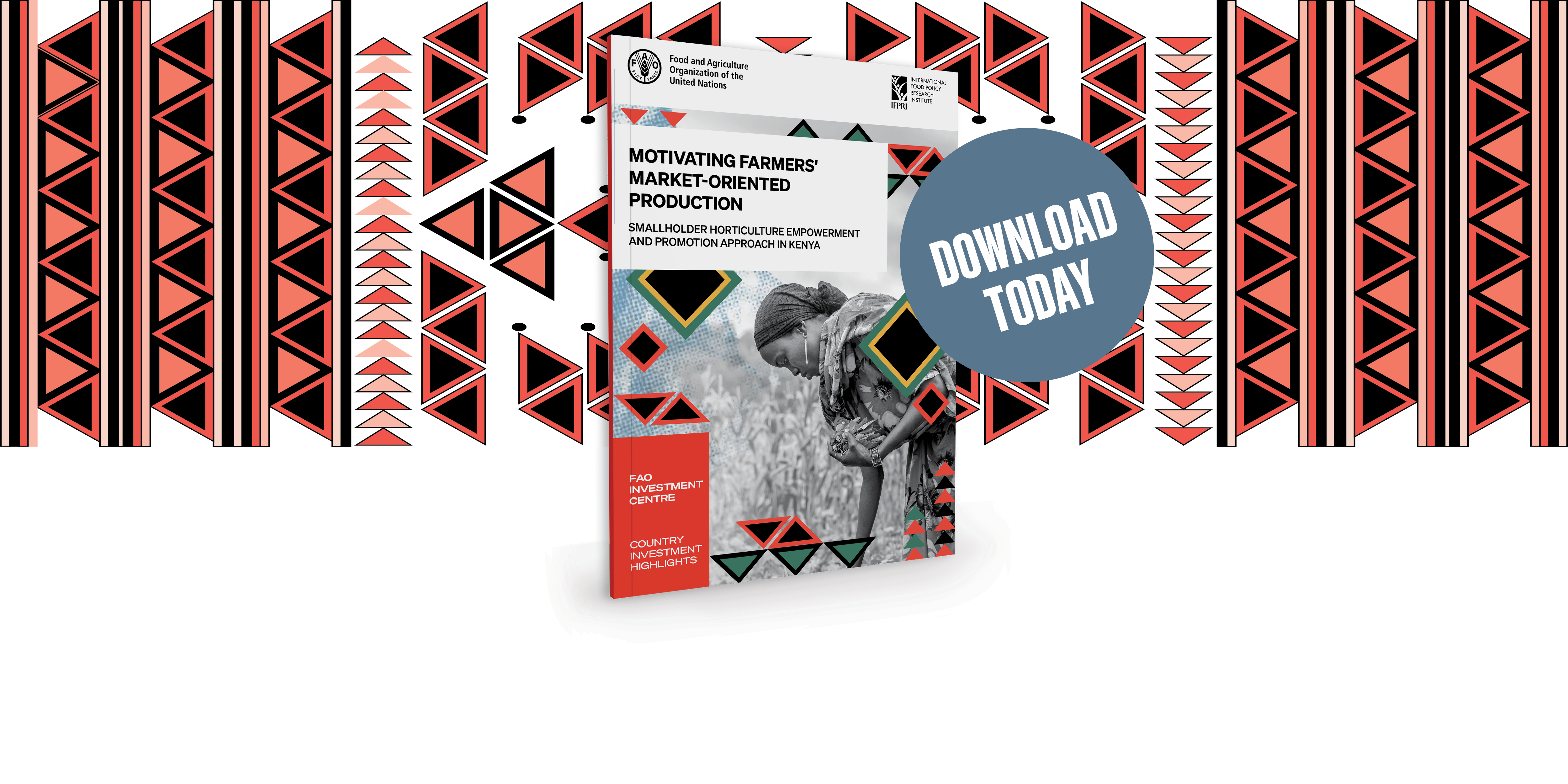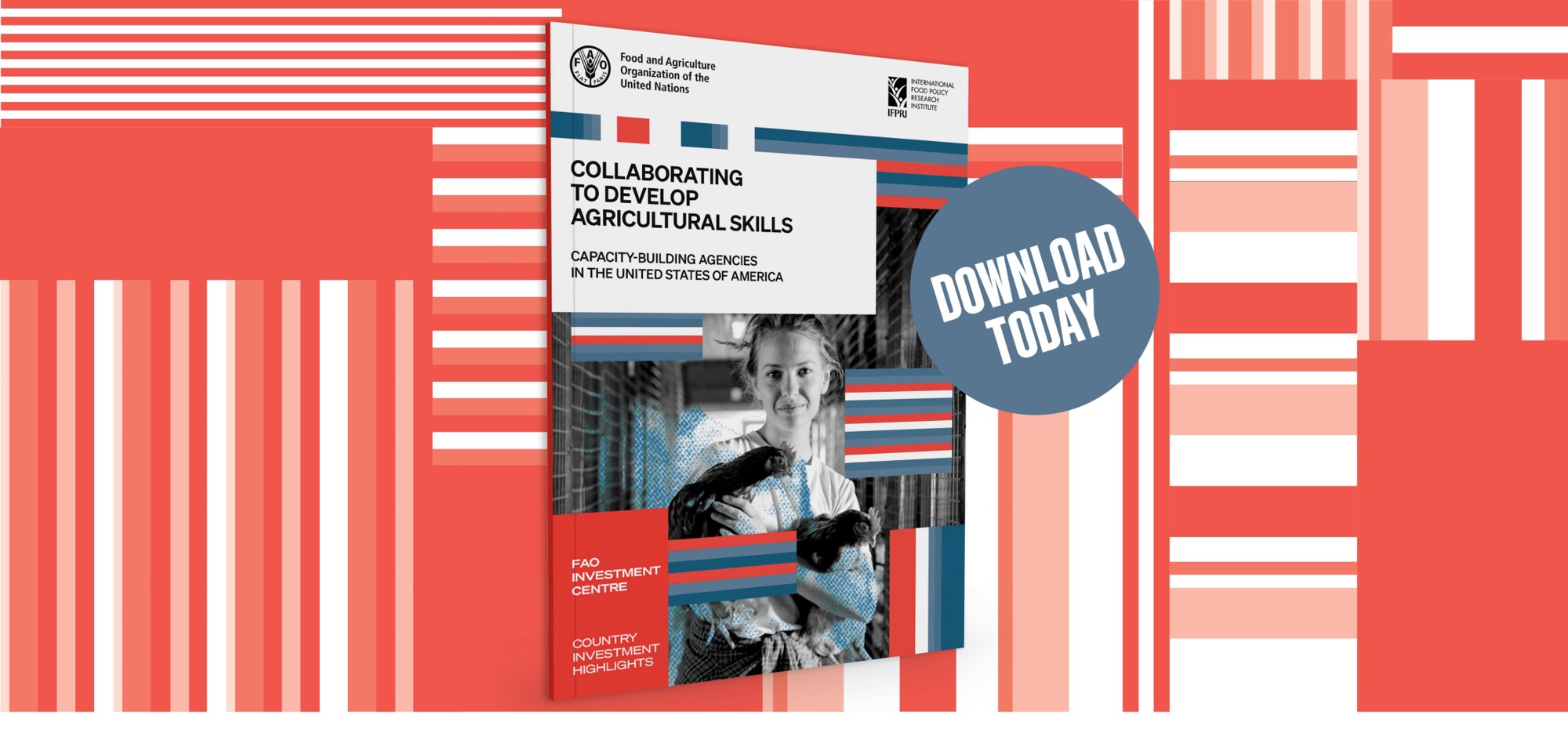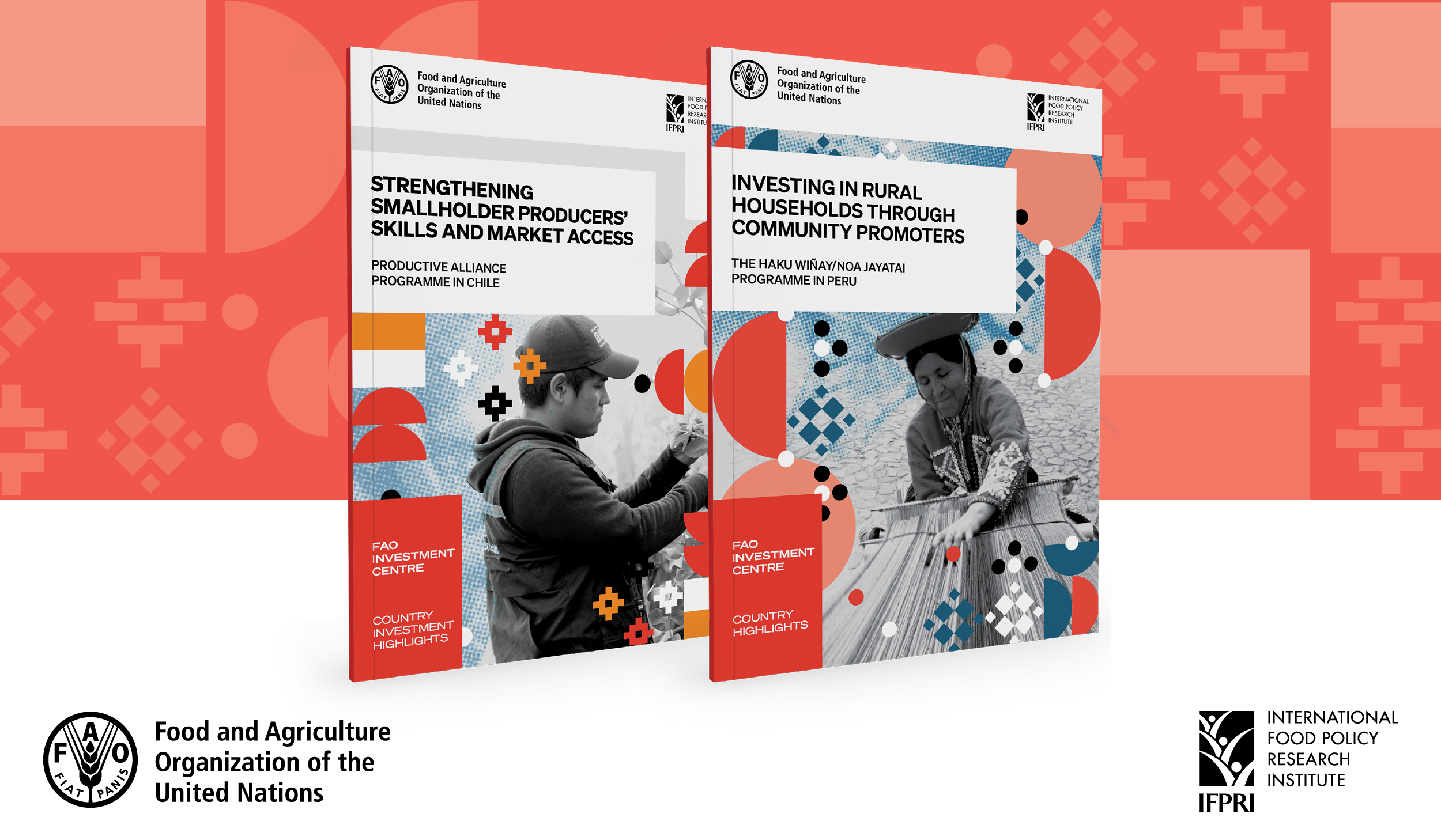Agriculture Human Capital Investment (AHCI)
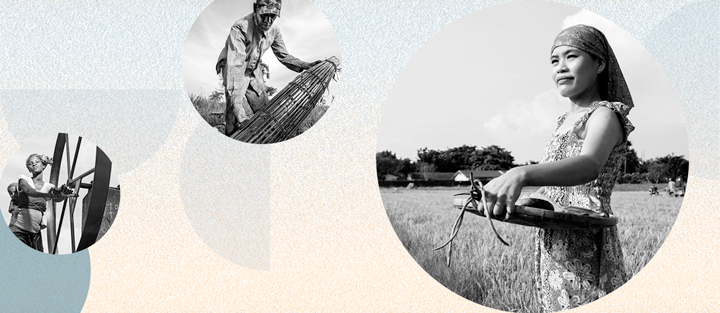
INVESTING IN FARMERS
Investing in farmers – or agriculture human capital – is crucial to addressing challenges in our agrifood systems.
A global study carried out from 2021-2023 by the FAO Investment Centre and the International Food Policy Research Institute, with support from the CGIAR Research Programme on Policies, Institutions and Markets and the FAO Research and Extension Unit, looks at agriculture human capital investments and initiatives globally.
The global study aims to provide governments, international financial institutions, the private sector and other partners with the evidence and analysis needed to make more and better investments in agriculture human capital.
This published series covers learning and experiences in a global report as well as thematic briefs and in-depth case studies in Cameroon, Chile, Côte d’Ivoire, India, Indonesia, Kenya, Peru, Rwanda and the United States of America. It includes a toolkit for practitioners as well as promising cases ranging from pastoralist training centres to the inclusion of indigenous communities.
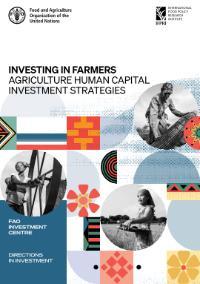 Investing in farmers: Agriculture human capital investment strategies
Investing in farmers: Agriculture human capital investment strategies
This Directions in Investment report is aimed at stakeholders with an interest in developing agriculture human capital for smallholder producers, especially international financial institutions, other bilateral donors, governments, farmer organizations and private sector investors.
The study shows that investments in developing the human capital of smallholder producers resulted in new technical and business capacities and skills and empowered farmers. This led to increased incomes, yields and the inclusion of marginalized groups.
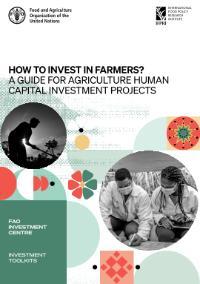 How to invest in farmers? A guide for agriculture human capital investment projects
How to invest in farmers? A guide for agriculture human capital investment projects
This toolkit aims to provide investors including policymakers, government officials, international and national development banks and the private sector, with the evidence, analysis, guidance and processes to make sounder investment decisions on projects, programmes and policies that strengthen farmers’ capacities.
Case studies

Case studies (in alphabetical order): Brazil, Cameroon, Chile, Colombia, Cote d'Ivoire, Ethiopia, Ghana, India, Indonesia, Kazakhstan, Kenya, Kiribati, Peru, Philippines, Rwanda, South Africa, Trinidad and Tobago, and The United States of America.
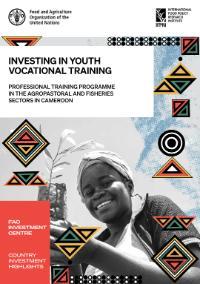 Investing in youth vocational training
Investing in youth vocational training
Professional training programme in the agropastoral and fisheries sectors in Cameroon
This case study looks at the Support Programme for the Renovation and Development of Professional Training in the Agropastoral and Fisheries Sectors in Cameroon. The programme prepares young people for jobs in the agropastoral and fishery sectors.
Investing in women livestock advisers and farmers
Jharkhand Opportunities for Harnessing Rural Growth Programme in India
This case study explores investment in developing the human capital of women livestock farmers as certified master trainers and community service providers known as Ajeevika Pashu Sakhi (APS).
Institutionalizing farmer field schools
Twigire Muhinzi National Extension System in Rwanda
This case study of the Twigire Muhinzi National Extension System in Rwanda looks at the government’s homegrown, decentralized and farmer-oriented national system based on two complementary types of farmer-to-farmer extension approaches: farmer promoters and farmer field schools.
Motivating farmers' market-oriented production
Smallholder Horticulture Empowerment and Promotion approach in Kenya
This case study looks at training delivered through the Kenya’s Smallholder Horticulture Empowerment and Promotion Approach, which has influenced farmers to shift towards market-oriented horticulture, and to improve production, marketing and incomes.
Strengthening smallholder producers' skills and market access
Productive Alliance Programme in Chile
This study analyses the impact of Chile’s Productive Alliance Programme (PAP) among small farmers. The programme enhances the creation of commercial partnerships between small farmers and larger companies, and funds and facilitates the conditions for the acquisition of skills and human capital.
Investing in farmers through public–private–producer partnerships
Rural Empowerment and Agricultural Development Scaling-up Initiative in Indonesia
This case study provides perspectives on investing in human capital in agriculture through public-private-producer partnerships, using lead farmers, cocoa doctors and farmer field schools.
Investing in rural households through community promoters
The Haku Wiñay/Noa Jayatai programme in Peru
This case study looks at Haku Wiñay/Noa Jayatai ("Let’s grow together" in the indigenous languages Quechua and Shipibo-Conibo, respectively) - one of the few government programs that work with poor rural households in a subsistence economy.
Professionalizing farmer organizations through private sector-led models
Capacity development initiatives in Cameroon and Côte d’Ivoire
This case study explores three private sector-led initiatives focusing on the capacity development of farmer organizations in Côte d’Ivoire and Cameroon. With stronger links to markets and services, the farmer organizations can help farmers access finance, inputs and know-how.
Collaborating to develop agricultural skills
Capacity-building agencies in the United States of America
This case study comes from the State of Mississippi in the United States of America. Agencies from i) formal education systems; (ii) nonformal education systems; (iii) state governmental agencies; and (iv) advocacy and commodity groups collaborated to develop agriculture human capital among youth and adults.
Thematic briefs
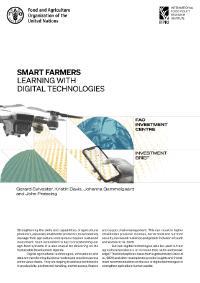 Smart farmers – Learning with digital technologies Investment brief
Smart farmers – Learning with digital technologies Investment brief
This investment brief explores cases from a global study and other examples to provide insights and investment recommendations on the use of digital technologies to strengthen agriculture human capital. Digital agricultural technologies, innovations, and data are transforming business models and practices across entire value chains.

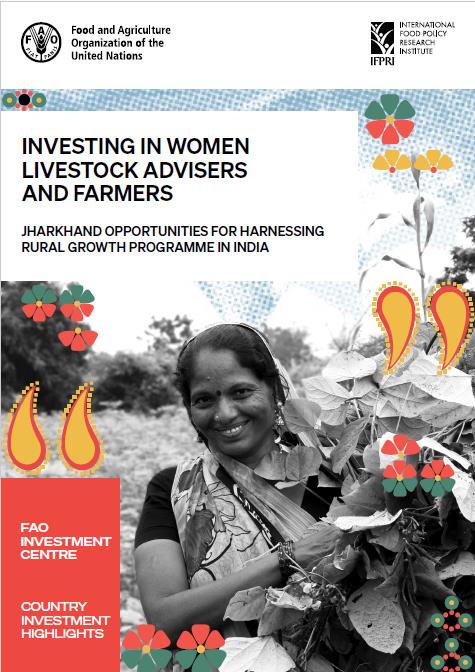
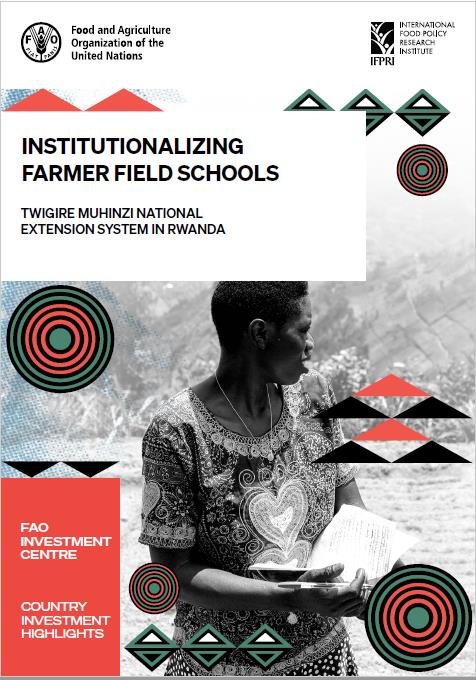
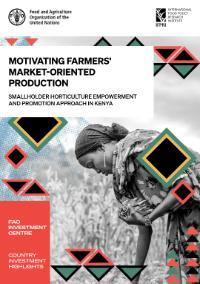
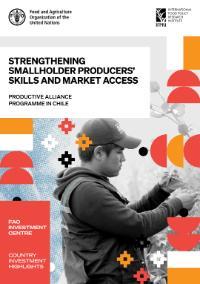
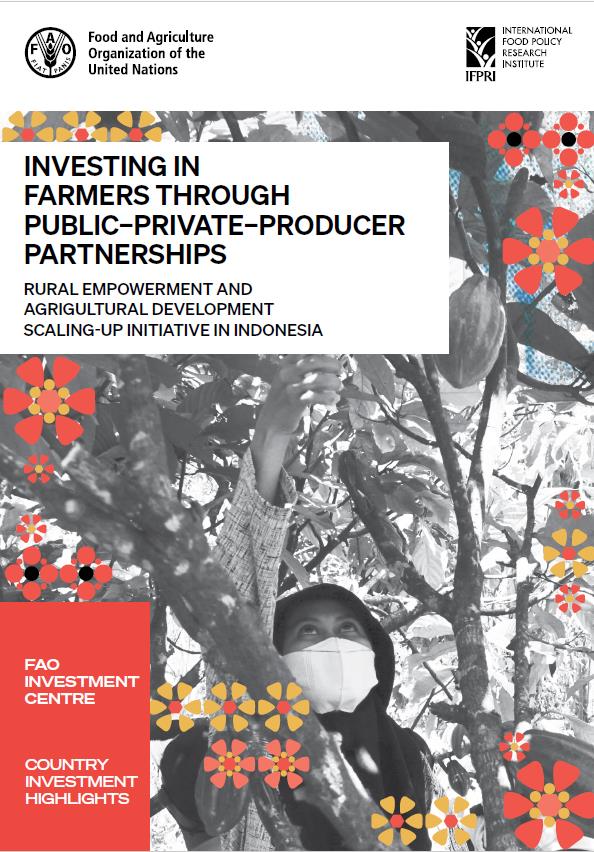
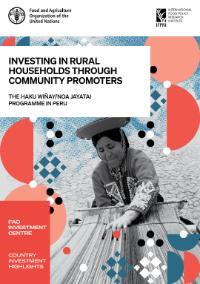
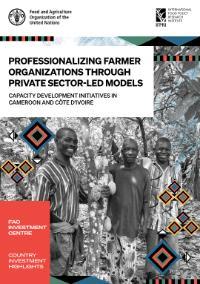
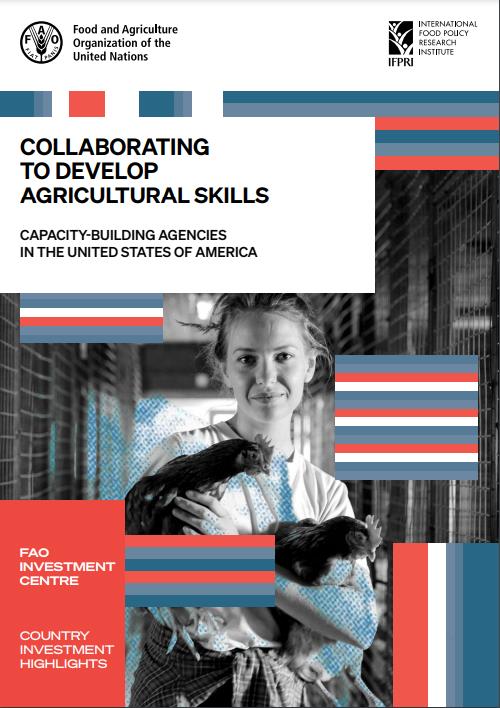
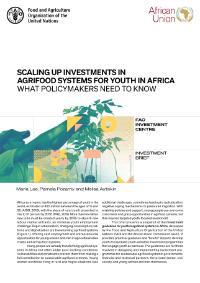 Scaling up investments in agrifood systems for youth in Africa – What policymakers need to know
Scaling up investments in agrifood systems for youth in Africa – What policymakers need to know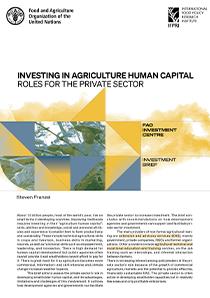 Investing in agriculture human capital – Roles for the private sector
Investing in agriculture human capital – Roles for the private sector